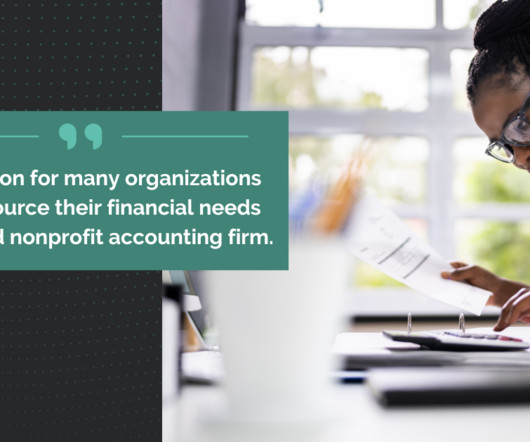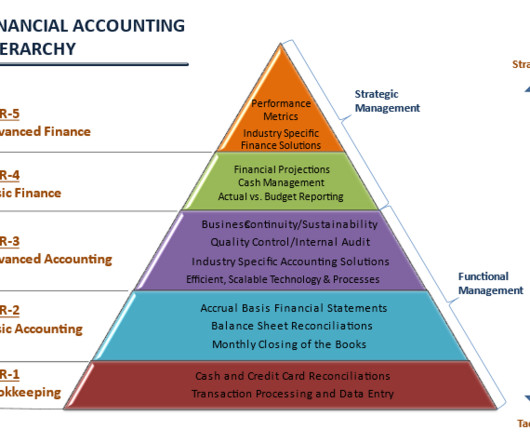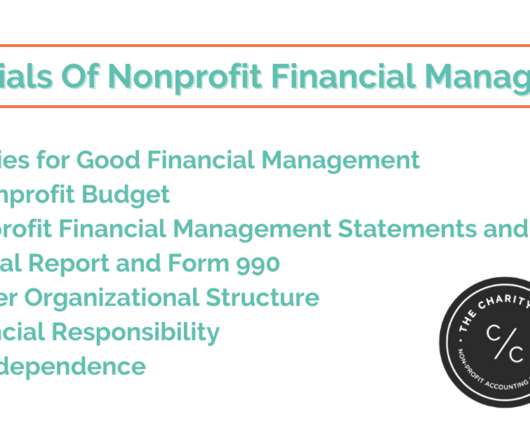The Difference between a Bookkeeper, an Accountant, and a CFO
The Charity CFO
JULY 19, 2024
They also help nonprofit leaders maintain compliance with legal standards and tax regulations. Properly managing an organization’s taxes helps ensure the nonprofit maintains its exempt tax status. Responsibilities typically include advanced analysis and reporting, budgeting, etc.













Let's personalize your content